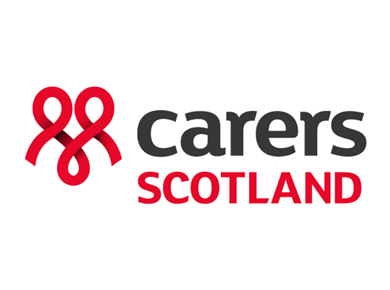It is important to understand what your rights are as a carer under the Equality Act 2010. We have provided introductory information below with where to go for further detail.
What is the Equality Act 2010?
The Equality Act 2010 was introduced to stop discrimination and promote equality. The Act could help you if you care for someone who is elderly or disabled. It could protect you against direct discrimination or harassment because of your caring responsibilities. This is because you are counted as being 'associated' with someone who is protected by the law because of their age or disability. If you’re treated less favourably than someone else because you’re caring for an elderly or disabled person, it is called ‘Discrimination by Association’.
Some examples would be:
- An employer refuses to offer you a job because of your caring responsibilities.
- You’re given a worse service than someone who isn’t caring for a disabled person.
What steps can I take if I have been unlawfully discriminated against?
Generally speaking, there are six potential steps to challenging discrimination under the Equality Act. In many cases, it will not be necessary to go further than step two.
It can help at this point to get some specialist advice, as there may be impending deadlines for taking legal action which may alter the order in which you should proceed - see our list of useful organisations.
For example, you can speak with or write a letter to the people who have discriminated against you or the person you are looking after. It is worth keeping a record of any conversations, meetings and correspondence regarding the issue.
If the informal complaint is not resolved go to step three.
Check the time limits for making your complaint.
If there's a complaints/grievance procedure, follow the procedure. If there isn't a complaints/grievance procedure, complain in writing.
If the complaint isn't resolved, go to step four.
Check the time limits for making your complaint.
If the independent complaints procedure does not resolve matters, go to step five.
If this still doesn’t resolve matters, go to step six.
It is vital to seek impartial legal advice before considering legal action. If you are on a low income, you may be able to get legal aid to pay for specialist legal advice to help with your case – see our list of useful organisations.

Know your rights
Our Being Heard guide provides a comprehensive source of reference on your legal rights, with tips on how to liaise effectively with professionals, make complaints and communicate effectively. We offer bespoke nation versions to reflect the different legislation and processes across the UK:
Scotland Northern Ireland England Wales Welsh
(You can also order printed copies on our shop.)
Useful organisations
The Equality Advisory and Support Service advises and assists individuals on issues relating to equality and human rights.
Helpline: 0808 800 0082 (textphone 0808 800 0084) open Monday to Friday 9am to 8pm and Saturday 10am to 2pm.
You can also email using a form on their website.
ACAS provides information, advice, training, conciliation and other services for employers and employees to help prevent or resolve workplace problems.
Helpline: 0300 123 1100 (text relay service 18001 0300 123 1100) open Monday to Friday 8am to 8pm and Saturday 9am to 1pm.
You can also ask a question online.
Civil Legal Advice might be able to give free confidential advice on discrimination if you are eligible for legal aid.
Equality and Human Rights Commission
You can also visit your local Citizens Advice.
The Carers UK Helpline offers advice on financial and practical matters related to caring. However, it cannot offer specialist discrimination advice.
The Equality Act and our strategy
In the Equality Act 2010, there are nine protected characteristics that cover age, disability, gender reassignment, marriage and civil partnership, pregnancy and maternity, race, religion or belief, and sex.
As part of our Vision 2025, we think that caring, unpaid, for disabled, chronically ill or older relatives or friends who need support is missing, and want to see caring become the 10th protected characteristic. While this is a considerable ambition, by setting our sights high we believe it will enable us to achieve much en route to the final goal.
Latest updates

Carers UK responds to DWP announcement of aim to tackle all Carer’s Allowance overpayment alerts
Carers UK responds to Department of Work and Pensions (DWP) announcement that it will aim to tackle all Carer's Allowance…

Carer Poverty Coalition responds to Government's welfare reform Green Paper
It's extremely worrying that some measures within the Green Paper on Welfare Reform changing disability and health benefits will actively…

Carers UK celebrates Investing in Volunteers award
Carers UK is delighted to have achieved the UK-wide quality mark for organisations involving volunteers during the charity’s 60th anniversary…

New rise in Carer Support Payment in Scotland earnings limit will increase financial security for carers on a low income
Carers Scotland press release on the increase in earnings threshold for Carer Support Payment in 2025.
Got a question about caring?
Every day we hear from people who need help with looking after a friend or family member
Become a member for free
Joining Carers UK is free and takes just a few minutes.
